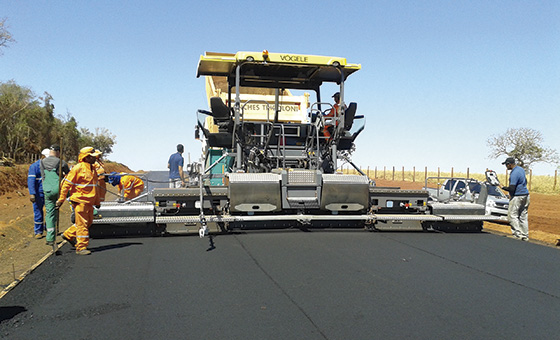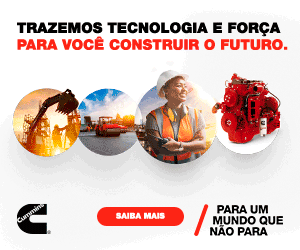State of the art in roads
In a standstill for road works, the industry shows specific solutions to optimize the technical processes and the use of resources in projects

Definitely the year of 2014—that had the World Cup and the elections—did not work as expected for several areas of Brazilian economy. In a standstill for projects, the market of road works was not different, going through an “expectation of possible transitions in the political scenario that cooled down the industry”, as synthetizes Elton Luís Antonello, engineering manager of Bomag Marini Latin America. For him and the executives interviewed by M&T in this article, the period of elections is quite problematic since many of the works depend on government investments, mainly of the federal government that is retaining resources and development till the beginning of the next term.
Due to circumstances, this context does not undermine the manufacturers’ optimism. After all, they have enough reasons to keep their confidence. At least, this is what the figures show. According to data from the Associação Brasileira das Empresas Distribuidoras de Asfaltos (Abeda), roads correspond to 60 percent of transport modes available in Brazil. Federal roads correspond to 1.72 million km, 90 percent of which are not even paved, what represents a huge potential market.
Antonello adds to this promising scenario the increase in the number of vehicles sold in last years and the agricultural super crops, which show a repressed demand for road works. “In addition to these new works, there is the maintenance of the already-paved roads, that are receiving a higher and higher flow and more and more load”, tells him, pointing that this demand is occurring in all Brazilian states.
Gilvan Medeiros Pereira, director of Ammann for Latin America also sees a market favorable to the players but also says that—for prudence reasons—the Swiss manufacturer also focuses its operation in exportations. “It is a preventive measure against eventual regional cycles that may cause negative impact on our business”, says him.
In a general way, this was what we heard. All executives agree with the future possibilities of the industry but maintain their focus in carrying out the works in course or in low-term planning. For Jandrei Luis Goldschmidt, marketing manager of Ciber Equipamentos Rodoviários, for example, investments are needed to speed up the plans of road infrastructure in the country. “But even in this scenario of uncertainty, the roadbuilding industry is maintaining a better performance than other areas of capital goods”, adds the expert.
Such point of view is followed by Marcos Bueno, expert in pavers of Atlas Copco that also sees a growing market in the last months, with results that would be better if there were no elections. “In fact, some negotiations were kept stand by due to the elections, waiting for their result”, emphasizes him.
TECHNOLOGIES
Meanwhile, manufacturers are improving technology and anticipating solutions to optimize processes of execution and use of resources in road projects. This is the case of pavers equipped with tamper, a system that allows them to work in the vertical direction using amplitudes that—in the case of Atlas Copco—vary from 6 to 10 mm, ensuring a better pre-compaction of the hot asphalt mix. “The result is a better finishing quality, allowing a reduction of compactor passes and of compaction costs”, says Bueno, remarking that this solution is standard in the pavers of this manufacturer.
Produced with Dynapac technology, the machines have working widths from 30 cm to 14 m, including—in the maximum width—the system CompactAsphalt, that allows the paving of two layers at the same time.
Another important player of this industry, Ciber points out the commands that reduce operating error in its equipment. According to Juliano Gewehr, product specialist of the company, pavers are an example of this technology, since they have a command that blocks the screed when the machine is stopped due to an eventual lack of asphalt truck. “This prevents that the screed sinks on the recently-poured layer”, says him. Other features of these machines are the displays with information about operation and service, as well as the leveling system (tamper), more and more integrated to the operation, according to the executive. Dealer of equipment of Vögele brand, Ciber is working with the new family Dash3, composed by equipment with paving width of 1,7 to 9 m.

Av. Francisco Matarazzo, 404 Cj. 701/703 Água Branca - CEP 05001-000 São Paulo/SP
Telefone (11) 3662-4159
© Sobratema. A reprodução do conteúdo total ou parcial é autorizada, desde que citada a fonte. Política de privacidade














